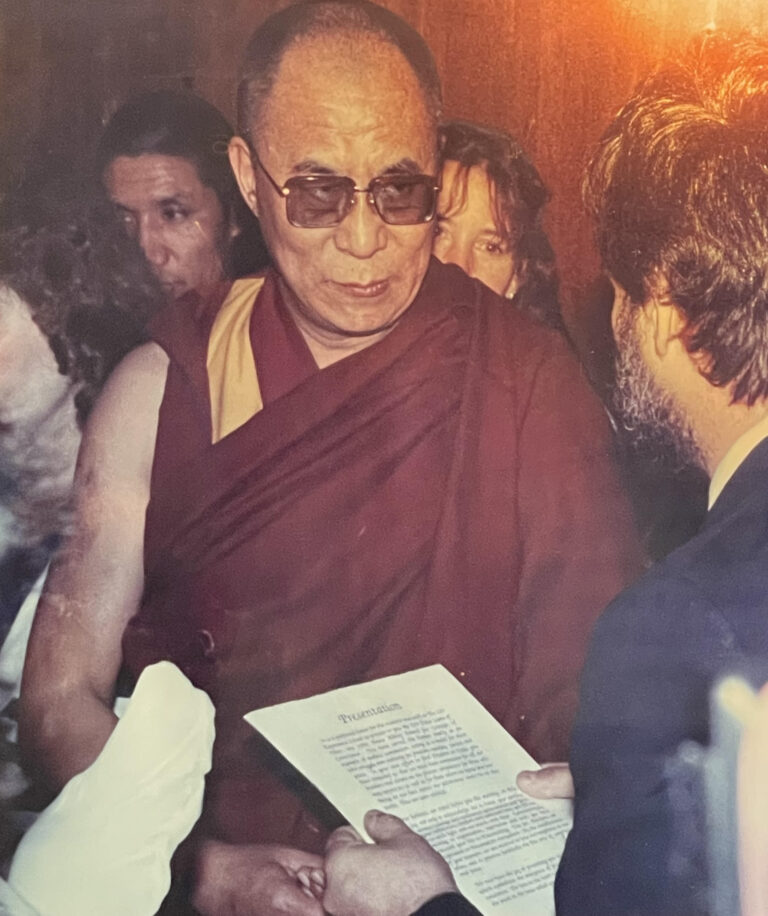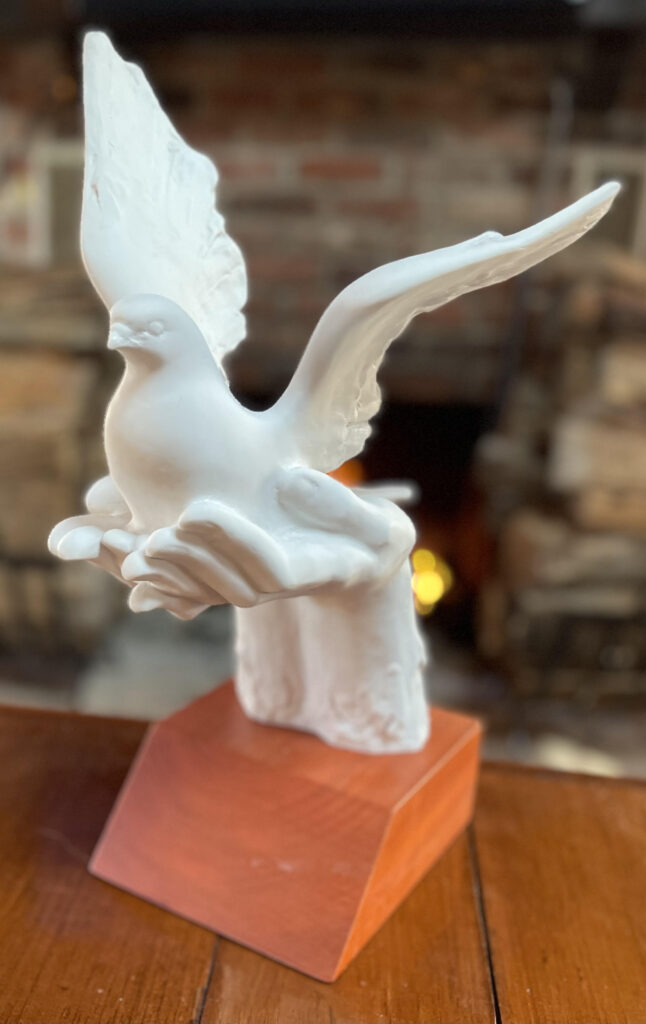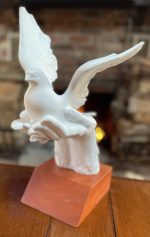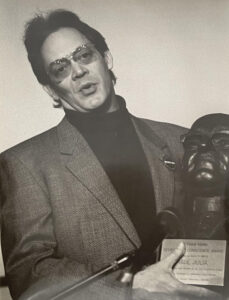
History

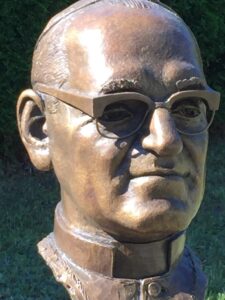
“The primary and unique mission of the Courage of Conscience Award is to honor and link high profile peacemakers, those well-known, widely publicized and well regarded – with lesser known activists who are equally deserving – yet not widely known, nor sufficiently supported.” – Lewis M. Randa, Executive Director, The Peace Abbey Foundation
The Courage of Conscience Award, like all humanitarian awards and prizes, derives its meaning and value through its origin story: During the devastating conflict in the Central American country of El Salvador in the 1970s and 80s, over 85,000 civilians were killed, an archbishop was assassinated—murdered while saying Mass at the Cancer Hospital of the Divine Providence in San Salvador where he chose to live. His assassination in the hospital chapel in 1980 was the result of his vehement opposition to the military – this prelate was Oscar Romero who championed the freedom causes of the oppressed Salvadoran people.
Ten years after his tragic death, The Peace Abbey commissioned international artist Lado Goudjabidze to sculpt a bronze bust of the slain archbishop to present to Fr. Ellwood Kieser, the producer of the film ROMERO. Following the viewing of the film at a private screening in Boston, Peace Abbey director, Lewis Randa, invited Kieser to visit the interfaith Abbey in Sherborn, MA. There he informed Kieser that a unique sculpture of Romero was being created to be presented to him on March 24th, the 10th anniversary of Romero’s assassination.
As life would have it, the presentation coincided with the Academy Awards in Los Angeles. Despite the fact the film was highly acclaimed, it was not nominated to receive that high distinction. Realizing this, the students at The Life Experience School (which is under the care of The Peace Abbey), bestowed the bronze bust of Oscar Romero, with an ironic twist. They presented the “gift” to film producer Kieser, Unitarian Universalist Executive Director, Dick Scobie, and a few months later to Raul Julia (who portrayed Romero in the film) humorously as “the only Oscar that really matters”.
What was initially intended simply to be a gift, turned into an international award – an expression of gratitude that reflected Romero’s visionary willingness to act courageously, out of conscience, for the betterment of the Salvadoran people. Sculptor Goudjabidze produced a mold so that other busts could be cast to honor those who devoted themselves to the causes of peace and justice.
The bust of Oscar Romero was later retired in 1991 to make way for the newly designed and sculpted white marble statue of a peace dove in outstretched hands — a universally recognized symbol of peacemaking. The graceful contours and gesture of the sculpted hands mirror hands in Islamic prayer, with the noble work of peacemaking symbolized in the emergence of the peace dove.
The first to receive the Courage of Conscience Award in the form of the peace dove was His Holiness the Dalai Lama in 1991. Coincidentally, he chose to receive it at the previously scheduled Harvard University Mind Science Conference at M.I.T. in Cambridge, MA. The date of the conference and the presentation of the award just happened to fall on March 24th, the anniversary of Romero’s assassination.
Since 1988, award presentations have been under the care of Peace Abbey Chaplain, Dot Walsh, who assumed a leadership role at the Abbey following Mother Teresa’s 1988 visit – with poet and author, Stefan Schindler, assisting in researching and writing many of the award presentations. Either in the form of the Romero bust or the peace dove sculpture, the award embodies the spirit of courage of conscience of Oscar Romero of El Salvador.
Recipients of the Courage of Conscience Award are from the following countries: USA, El Salvador, Tibet, Sweden, Nicaragua, India, Vietnam, Egypt, Israel, Australia, China, Soviet Union, Cambodia, Argentina, Japan, England, Palestine, Rwanda, Nepal, Spain, Mexico, France, South Africa, and Columbia.
